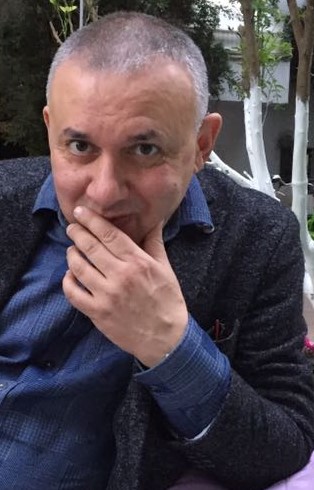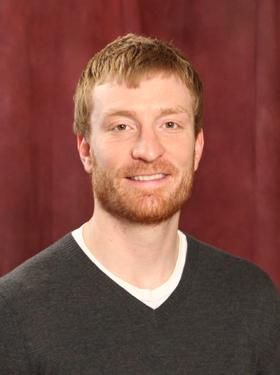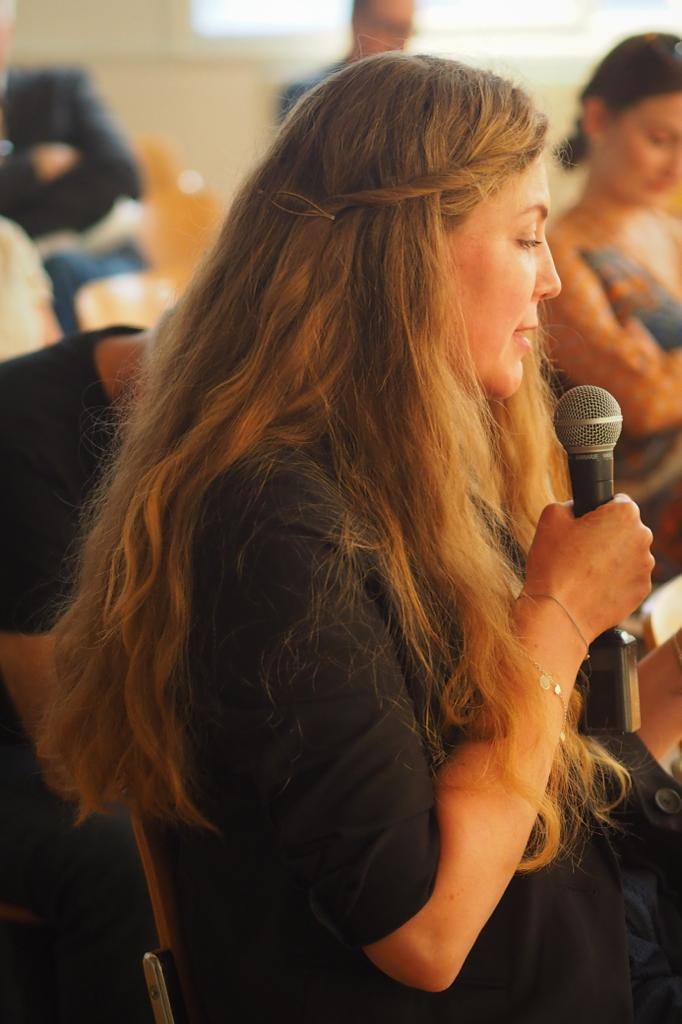Editorial Board
Editor-in-Chief
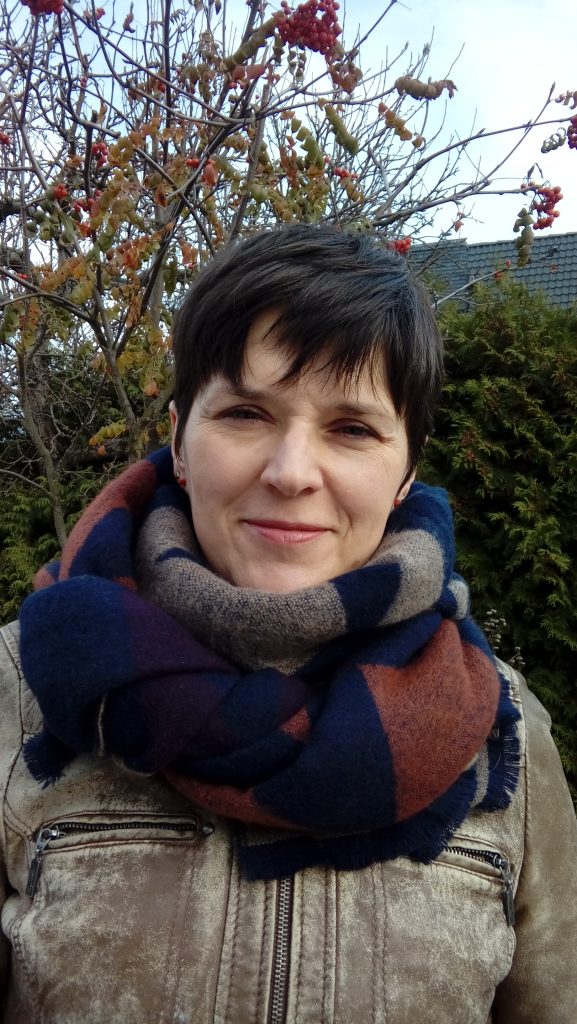
Beata Waligórska-Olejniczak, Ph.D., D.Litt., Prof. (Adam Mickiewicz University in Poznań) – specializes in literary studies, works as Professor at Adam Mickiewicz University in Poznań. She is the Deputy Director of the Institute of East Slavic Philology, since 2014 she has also been the Head of the Department of Comparative Studies in Literature and Culture at the same Institute. She is the graduate of Russian and English philology at Adam Mickiewicz University and postgraduate film studies at the Institute of Art of the Polish Academy of Sciences in Warsaw. She is the (co)author of 5 monographs: Literary Constellations of Andrey Zvyagintsev’s Oeuvre (Literackie konstelacje (w) twórczości Andrieja Zwiagincewa) (2022), Contemporary Russian Cinema in View of War Traumas. Literary and Cultural Context (Współczesne kino rosyjskie w obliczu traum wojennych. Kontekst literacki i kulturowy) (2020), New Russian Cinema in View of Literary and Film Tradition (Nowe kino rosyjskie wobec tradycji literackiej i filmowej) (2017), “Sacrum” on the Way. Venedict Erofeev’s “Moscow-Petushki” and Quentin Tarantino’s “Pulp Fiction” from the Angle of Montage Reading („Sacrum” w drodze. „Moskwa-Pietuszki” Wieniedikta Jerofiejewa i „Pulp Fiction” Quentina Tarantino w kluczu montażowego czytania) (2013), “Theatrical gesture“ in A.P.Chekhov’s Drama “the Seagull” and Free Dance as Aesthetic Context of Great Theatre Reform („Sceniczny gest” w sztuce A. P. Czechowa „Mewa” i „taniec wyzwolony” jako estetyczny kontekst Wielkiej Reformy Teatralnej) (2009). In the years 2004–2005 she was an employee of Northwestern University (IL, USA).
She is the holder of the scholarship of the Archimedes foundation (University of Tartu, Estonia) and the recipient of financing within the framework of Academic Visitors Scheme (University College London). She translated several books into Polish (including Charlotte Zeepvat’s Romanov Autumn: The Last Century of Imperial Russia). She is a member of the Executive Committee of the European Society of Comparative Literature, Associate Editor of COMPLIT: Journal of European Literature, Arts and Society (published by Classiques Garnier), the Slavic Commission of the Polish Academy of Sciences (Poznań unit), Polish Society for Russian Studies and Polish Society for Film and Media Studies. Her research interests focus on interdisciplinary studies, Russian modern and postmodern literature, and contemporary Russian film studies.

The members of the Editorial Board
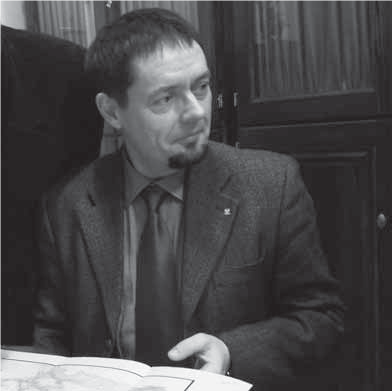
Wawrzyniec Popiel-Machnicki, Ph.D., D.Litt. (Adam Mickiewicz University in Poznań, Subject Editor responsible for literary studies) – he works as university professor at Adam Mickiewicz University in Poznań. He is employed in the Institute of East Slavic Philology, in which he serves the function of the Director of the Institute and the Head of the Department of Russian Literature. He is the author of three monographs and several dozens of academic papers devoted to Russian literature of the 20th and 21st centuries. He is the Editor-in-Chief of the journal Kultury Wschodniosłowiańskie – Oblicza i Dialog. At the Institute of East Slavic Philology he is the supervisor of the students’ East Slavic Science Club, he is also the vice-chairman of the Slavic Commission of the Polish Academy of Sciences (Poznań unit), as well as a member of the Editorial Board of the Faculty of Modern Languages at Adam Mickiewicz University. He was the PI of the research project no. 2013/11/B/HS2/02814 funded by the National Science Centre: “Podróże nieodkryte”. Nieopublikowane dzienniki Bronisława Grąbczewskiego jako świadectwo historii i element dziedzictwa kulturowego. The monograph, published as the result of the grant, by Adam Mickiewicz University Press, (co-authors: A. Pleskaczyński, K. Pleskaczyńska) won the award of the Minister of Science and Higher Education for the best academic monograph in 2018. He was the supervisor of 4 Ph.D. students and 143 M.A. students.

Boris Lanin, Ph.D., D.Litt. (Adam Mickiewicz University in Poznań, Subject Editor responsible for comparative literary and linguistic studies) – he served as a visiting professor at the Kennan Institute and then at Woodrow Wilson Center (Washington, DC), the Institutes for Advanced Studies (Paris, France; Waseda-Tokyo, Japan, and Uppsala, Sweden). He worked at Hokkaido, Stanford, Kobe, and Saitama Universities, as well as Alfried Krupp Wissenschaftskolleg (Greifswald). He also was a National Endowment for Humanities Distinguished Visiting Professor at The State University of New York, in Potsdam (2018), and Visiting Professor at the British Academy (2005).
Professor Lanin’s literature textbooks (from the 5th to the 11th grades) were widely used at secondary schools in the Russian Federation. Approximately a million of copies in total have been sold by 2022, when they were banned for political reasons.
His academic works have been published in Japanese, Russian, Serbian, Polish, French, Korean, German, and English.

Justin Wilmes (Subject Editor responsible for comparative literary and film studies) is an Associate Professor of Slavic Studies at East Carolina University. His work examines post-Soviet cinema and culture, but extends also to Russian drama, Ukrainian and Polish culture, and translation. He has published in a range of journals and books, including “Russian Literature”, “Studies in Russian and Soviet Cinema”, “The Russian Cinema Reader”, “KinoKultura”, “The Pushkin Review”, “Cinemasaurus”, “Chekhov in Context”, “Re/Framing East European Cinema”, “Contemporary Russian Documentary: Negotiating the Personal and the Political”, and others. He holds a Ph.D. in Slavic and East European Languages & Literatures from Ohio State University.

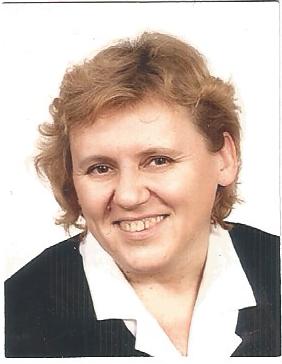
Bożena Hrynkiewicz-Adamskich, Ph.D., D.Litt. (Adam Mickiewicz University in Poznań, Subject Editor responsible for linguistics) – she works as university professor at the Institute of East Slavic Philology at Adam Mickiewicz University in Poznań. In the past she was employed in the Department of Oriental Studies. She got her M.A. in Russian philology as well as in Linguistics and Scientific Information at AMU. She devoted her doctoral and habilitation theses to Old Russian anthroponymy. Her research interests include: General and Slavic Linguistics, onomastics (particularly historical and cultural), lexicology, lexicography. Her most important academic publications are: Материалы для словаря древнерусских личных именований. Указатель к актам Соловецкого монастыря 1479–1584 гг. (2001), a series of papers entitled Антропонимия Севера России конца XV – XVI века published in the journal “Onomastica”, Rosyjsko-polski słownik innowacji leksykalnych (2005), Siedemnastowieczne imiennictwo osobowe północnej Rosji na tle lokalnej kultury (2012), a series of papers entitled Драгоценности Рюриковичей по памятникам письменности published in the journal “Studia Rossica Posnaniensia”. She is a member of the Polish Linguistics Association and the Slavic Commission of the Polish Academy of Sciences (Poznań unit). She is also a sworn translator of the Russian language.

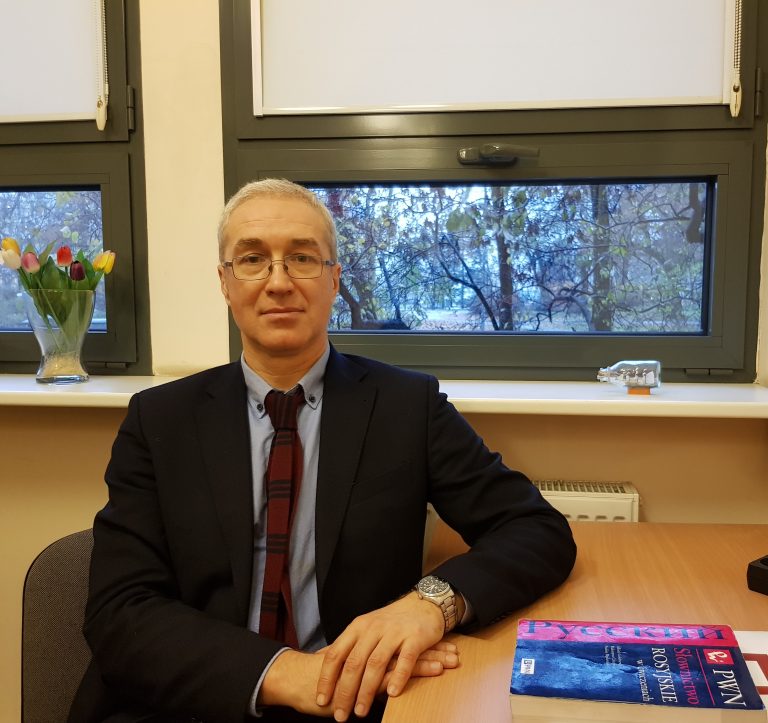
Roman Szubin, Ph.D. (Adam Mickiewicz University in Poznań, Language Editor) – he is an employee of the Department of Communication Pragmatics of Foreign Languages at the Institute of East Slavic Philology at Adam Mickiewicz University in Poznań. He was born in 1973 in Yerevan (Armenia). He graduated from Yerevan State University. Until 2010 he worked in many renown educational institutions of Armenia: Gladzor University, Yerevan State University, Russian-Armenian University (“Slavic”), in which he taught Russian Literature and Practical Russian Language classes for students of various specializations. He is currently working at Adam Mickiewicz University in Poznań. The main course he teaches is Practical Russian Language. His important achievement within this field is having developed and implemented a didactic aspect of academic stylistics. He is the author of about 60 academic publications focused on literary onomastics, the works of A. Chekhov, W. Shukshin and M. Prishvin, literary hermeneutics, as well as contemporary Russian literature.

Irina Schulzki, M.A. (Ludwig-Maximilian University of Munich, Language Editor) – she is the Publishing Director of the academic open access journal Apparatus. Film, Media, and Digital Cultures in Central and Eastern Europe. Irina studied Russian Literature, Linguistics, Ethnology, and Intercultural Communication (Perm State University, Russia), and received her Master’s degree in East European Studies at the Ludwig-Maximilian University of Munich (Germany). She is a PhD candidate at the Graduate School Language & Literature (LMU Munich) and a member of the Gender Politics Research Group at the Fernuniversität in Hagen (Germany). She has published book chapters and journal articles in English, German, and Russian on film and gesture, fan fiction, theories of the comical, phenomenology and media, the prose of Mikhail Shishkin and the cinema of Kira Muratova; co-edited the volume Fictions / Realities. New Forms and Interactions (with Jörg von Brincken and Ute Gröbel, 2011); the special issue of Apparatus 5 (2017), titled Mise en geste. Studies of Gesture in Cinema (with Ana Hedberg Olenina), and Apparatus 14 (2022): Soviet Playtime: Architectures of Power and Profligacy in DAU (with Philip Cavendish and Natascha Drubek). Together with Irina Gradinari at the FernUniversität in Hagen, she co-organised two international conferences: “People don’t like to look at this…”: The Cinema of Kira Muratova (2021) and The Women’s Cinema of the 21st Century – From Film d’Autrice to Genre Cinema (2023). Research interests include contemporary Russophone film and literature, film semiotics and phenomenology, intermedia theories of gesture, gender studies.

Konrad Rachut, Ph.D. (Adam Mickiewicz University in Poznań, Secretary, Statistical Editor)


